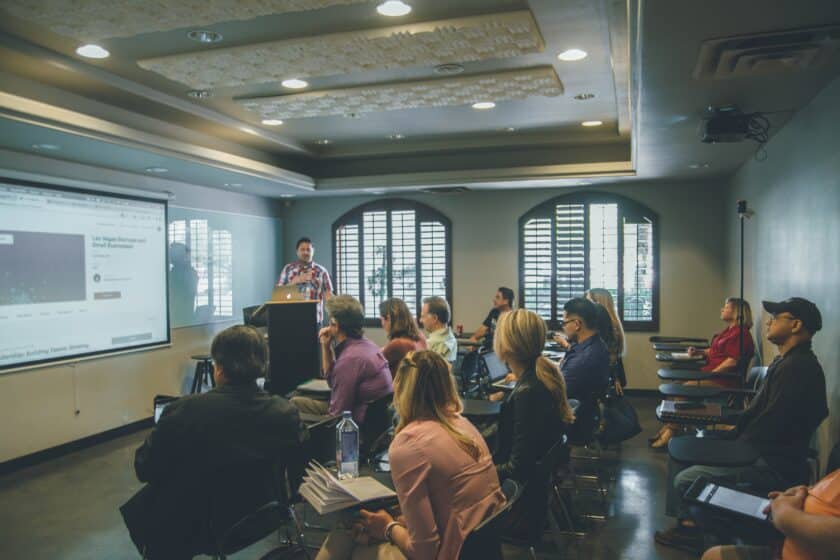In the constantly changing financial services environment, our recent parameters survey looked at whether paraplanners felt they are receiving the right level of training and support from their firms, and how it is delivered. Here’s what you said.
A host of regulatory changes over the past decade has meant advice firms and paraplanners have had to navigate a complex landscape as they get to grips with the new rules and their impact on clients.
However, nearly seven in 10 (69%) paraplanners said they feel the training and support offered by their company allows them to understand both changes within the industry and wider legislative changes, the results of the latest Parameters Survey has shown.
In contrast, less than a fifth (19%) said they do not believe they receive sufficient training and support to cope with the changes.
Among the majority who were satisfied with the level of support offered to them, the survey revealed a number of different methods available, including webinars, access to provider support and CPD. Several paraplanners also said their firms offers access to external training as and when needed.
One paraplanner told Professional Paraplanner: “I get the support from my company to attend any external training session that I believe will be relevant to my role both now and in the future.”
Christina Georgiou, senior paraplanner and director at Argonaut Paraplanning, says: “We have meetings everyday where we can brief each other on things that we need to keep up to date with. All staff are subscribed to trade publications and providers that we find most useful in keeping us up to date with changes in legislation.”
DIY learning
However, among the fifth (19%) who do not feel they receive sufficient training and support from their company, the onus was on paraplanners themselves to seek out information.
One says: “We get training when needed but I feel more could be done as most things I end up having to select my own learning.”
Another comments: “In most, if not all, firms where I have been, this is mainly self-driven as the information is there but it’s up to each and every paraplanner and admin to stay abreast of changes.”
One respondent called upon their firm to implement a more robust structure to ensure everyone understands what’s going on.
“Our compliance, sales and support departments need to come up with a cohesive approach to updates to ensure that all relevant members continue to be updated and have access to the same message. There have been times where paraplanners have been given updates, which haven’t been passed to sales and vice versa so we’re having to break news to each other.”
But, according to Georgiou, training for staff is essential and firms should not use excuses to avoid implementing it.
“Often people put barriers themselves in the way of providing regular and decent training, such as saying “there’s no time, we’re too busy” but these are excuses,” she explains. “There is a lot of resource out there that can be accessed at no cost to a business other than valuing your staff enough to give them the time use it.”
For Georgiou, the advice industry needs to undergo a cultural mind shift when it comes to helping staff stay abreast of changes.
She believes training should be given at all levels in a business and not confined to advisers.
“All staff at Argonaut are required to do the same amount of structured and non-structured CPD as a regulated adviser would have to do. This is monitored on a quarterly basis so there is accountability for everyone.
“I think it’s important to work out who your ‘go-tos’ are. A lot of time can be wasted by scouting around looking for information or help. Find the providers, compliance resource, trade publications and peer led resources that you know you can rely on for help and support,” she says.
For paraplanners working alone, staying abreast of changes is also critical. With no training department, they need to ensure they have access to good quality learning and development resources.
Caroline Stuart, founder of Sparrow Paraplanning, says there is “masses of support and high quality content available” for paraplanners to enhance their knowledge.
Stuart says: “I’m a member of the CISI and so I use their CPD platform a lot to keep up to date with both professional, legislative and taxation changes. Each of these aspects is essential and I need to keep up to date with all of them to be able to do my job properly and look after my clients, helping them to look after their clients.”
Beyond formal training, paraplanners should lean on each other for support and to enhance their skills and understanding, says Stuart.
“I have worked in firms where the paraplanners and planners have a regular huddle to get together, share ideas, what’s gone well and what’s not gone well. This is invaluable as it gives people the chance to talk about changes, make sure that their understanding is correct and get other people’s views, all of which are fundamental in learning, developing and growing as a paraplanner.”
She also recommends paraplanners take the time and opportunity to attend events and meet with other paraplanners.
“It’s not training but, speaking from my own experience, it helps build a paraplanner’s confidence, knowledge and wider skills, as well as giving the chance to share and learn best practice which just won’t be available from training alone,” she adds.
Main image: kenny-eliason-1-aA2Fadydc-unsplash






























